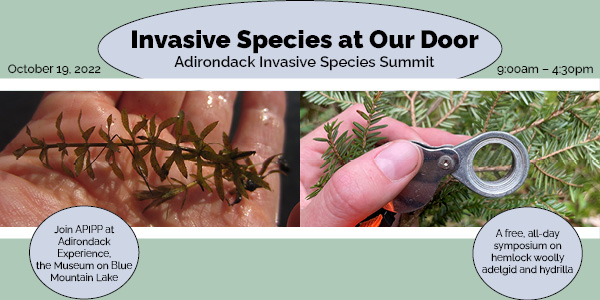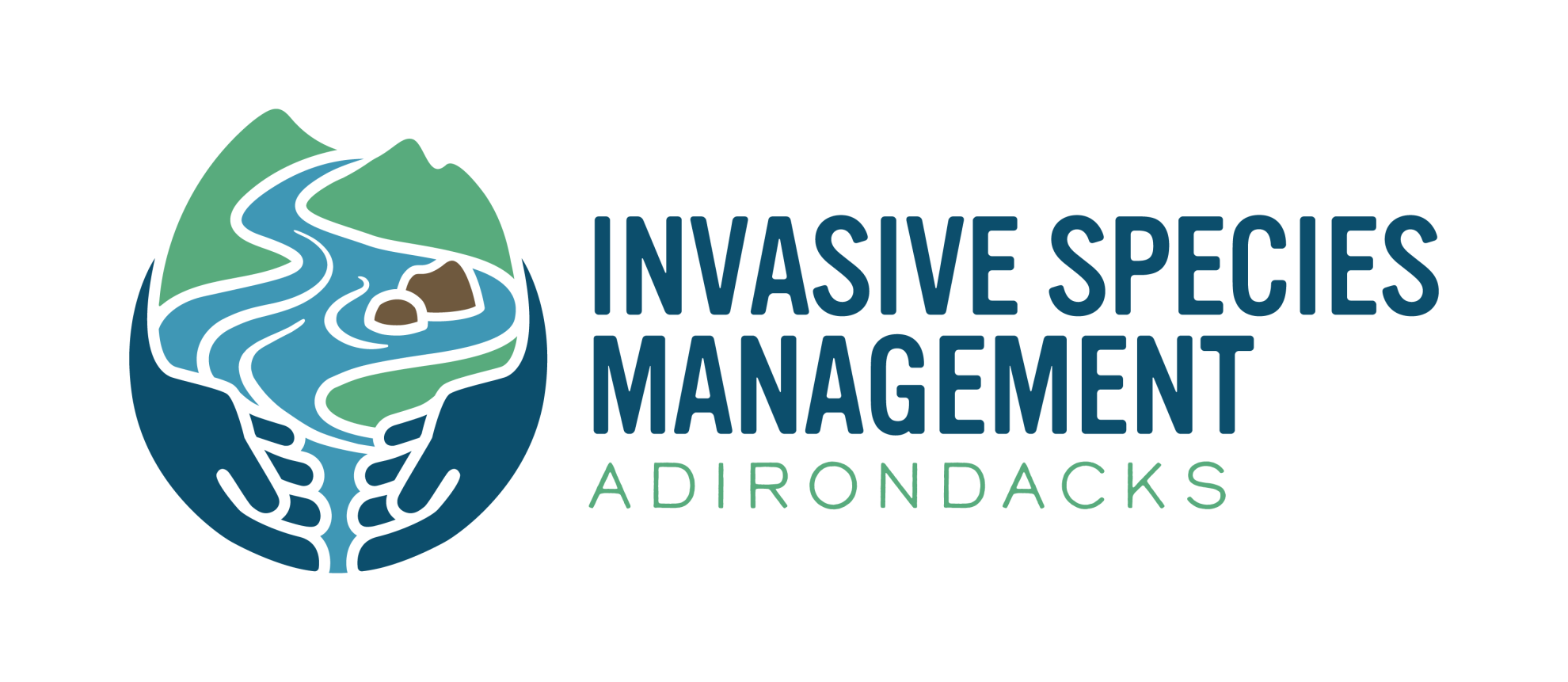APIPP News: Forest Pest Hunters Launch Sept. 15; APIPP Summit Oct. 19

APIPP News: Forest Pest Hunters Launch Sept. 15; APIPP Summit Oct. 19
Dear Partners,
Thank you for all of your efforts to control invasive species this summer. Across the Adirondacks, partners and volunteers are surveying for terrestrial and aquatic invasive species and helping to prevent their spread. There is still time to monitor your lake for invasive species, see below for links to helpful information.
I am excited to launch our Forest Pest Hunter program for beech leaf disease on September 15. And, I am thrilled to announce registration has opened for the 5th Adirondack Invasive Species Summit which will be held on October 19. We have some of the region’s top experts on invasive species coming to Blue Mountain Lake on October 19 to share their expertise with you. Please follow the registration links below and join us for these programs.
Forest Pest Hunters: Fall Surveys for Beech Leaf Disease to Start with Webinar on September 15
In late June, the NYS Department of Environmental Conservation confirmed the first infestation of beech leaf disease (BLD) in the Adirondacks. The disease was first identified in Ohio in 2012 and has spread rapidly. It kills both native and ornamental beech tree species, which is a cause for concern since beech trees are prevalent in Adirondack forests.
APIPP is looking for volunteers and professional forest managers to join our Forest Pest Hunters program to search for beech leaf disease (BLD) from September 15 to October 31. (Forest Pest Hunters surveyed more than 400 sites for hemlock woolly adelgid last spring!) To kick off the BLD survey season, a training webinar will be held on September 15 at 10:00am. To register, click here. Foresters can receive 1.5 hours of Category 1 credits from the Society of American Foresters for this webinar.
Invasive Species at Our Door—Adirondack Invasive Species Summit: October 19, 9:00am-4:30pm, Blue Mountain Lake
APIPP is excited to host its 5th Adirondack Invasive Species Summit on October 19. The Summit brings together top experts in the field to share their knowledge with Adirondack PRISM partners. This free, day-long event will focus on the threat and the opportunity to manage two invasive species that have the potential to dramatically impact Adirondack forests and freshwater ecosystems—hemlock woolly adelgid (HWA) and hydrilla.
The Summit is an opportunity to hear from some of the region’s experts about HWA, a forest pest that is taking hold in the Lake George region. HWA panelists include David Orwig, Senior Ecologist and Forest Ecologist from Harvard Forest; Gary Lovett, Senior Scientist for the Cary Institute of Ecosystem Studies; and Mark Whitmore, Director of the New York State Hemlock Initiative at Cornell University. The featured speakers will talk about the impact HWA may have on Adirondack forest ecosystems and the carbon sequestration potential of our forests, as well as how to manage hemlocks reduce these impacts. Speakers will also talk about the potential for biocontrols to help in the fight against HWA. Following the presentations, participants will have a chance to discuss the implications for the Adirondacks if HWA is here to stay.
The Summit is also a chance to learn more about hydrilla, an aquatic invasive species that is present in other regions of New York. Meg Modley, Aquatic Invasive Species Management Coordinator for the Lake Champlain Basin Program, will provide an introduction to hydrilla and cover the plant’s current infestation locations and how its presence could impact the Adirondacks. Dr. Susan Wilde, Associate Professor with the University of Georgia, who recently discovered a link between a bacteria connected with hydrilla and the death of eagles in the Southeast, will discuss her groundbreaking research. The Army Corps of Engineers will share the latest best management practices for managing hydrilla and Bill Brosseau, Stewardship Director for the Paul Smith’s College Adirondack Watershed Institute, will report on Adirondack hydrilla prevention programs. Following the presentations, participants will have a chance to discuss what we can do to prevent or prepare for infestations of hydrilla in the Adirondacks.
The Summit will be co-hosted by Adirondack Experience, the Museum on Blue Mountain Lake. There is no charge to attend, but space is limited so you must pre-register here. The Society of American Foresters has approved 5 hours of Category 1 Continuing Forestry Education credits for the Summit.
For those who cannot attend in person, presentations will be livestreamed on Facebook or a similar platform; however, viewers will not be able to participate in the discussions. (The livestream will be recorded, but audio and visual quality may be variable.)
There is Still Time to Survey Your Lake for Aquatic Invasive Species!
Late August/early September is the perfect time of year to survey waterbodies for aquatic invasive species. Protect your favorite lake by looking for aquatic invasive species and help APIPP track what is happening across the Adirondacks. You can find all the tools you need to get started and to report your findings on the Lake Protectors page of our website. Adopt a lake today! If you have questions, please reach out to Brian Greene, APIPP’s Aquatic Invasive Species Coordinator (brian.greene@tnc.org). Many thanks to the volunteers who have already signed up and who are sending in data. The information is great!
Regards,
Tammara
P.S. Mark your calendar now for APIPP’s Fall Partner Meeting on December 1.

